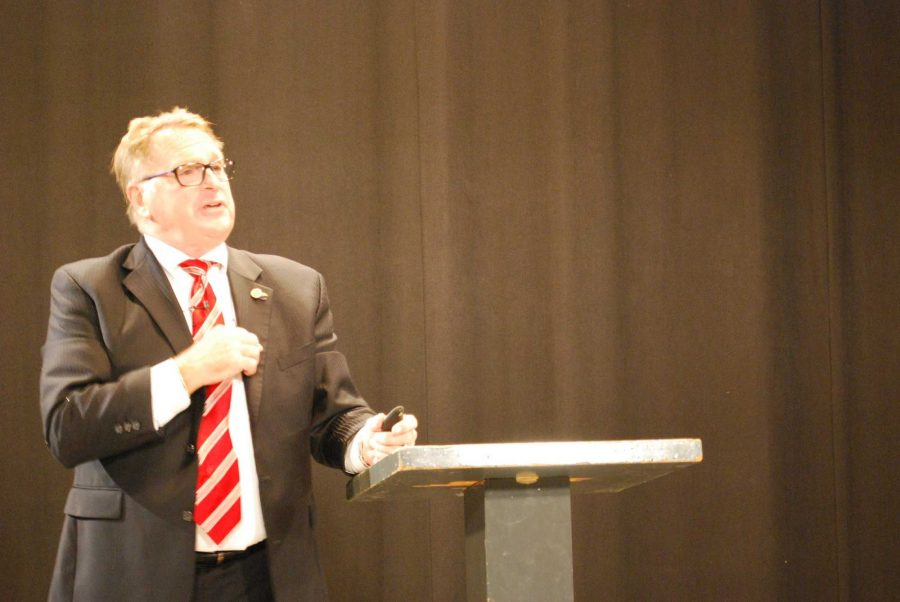Students gain priceless advice from financial lecture
Professor Tim Weaver gives a lecture on “Personal Financial Success” on Feb. 17 in the Television Studio, room 129. Photo credit: Spencer White
February 19, 2016
Business Professor Tim Weaver treated over a dozen students to a lesson in financial success on Feb. 17.
Weaver opened the lecture with an alarming statistic on adults having budgets.
“Almost two-thirds of adults admit to not having a budget even though this is a building block of financial stability,” said Weaver. “This number is the highest in six years.”
The Personal Financial Success lecture, as part of the Year of Wellness lecture series, discussed the importance of having a budget, prioritizing your needs from wants and having a good credit score.
Weaver said that students should create and follow a monthly budget for themselves.
“Start at the beginning of each month,” said Weaver. “Open a savings account which will start compounding interest and keep track of everything you spend throughout the month.”
Weaver noted that the same amount of adults that did not have a budget, also have not reviewed their credit score in the last 12 months. Weaver also predicted what the future might hold for credit score usage.
“By the end of the year, car insurance companies will run your credit score to see if you are a risk or not,” said Weaver. “Eventually, life insurance will also have to deal with credit reports, affecting stress level and mental health.”
Kimberly Gonzales, a film major, 20, found the lecture very informative and took away a lot of the advice.
“I thought it was really helpful, considering you do not learn a lot of stuff about finances unless you are a business or econ major,” Gonzales said. “Considering he was a former banker, it was definitely professional advice and the fact he is at Moorpark makes it really convenient if I ever had any more questions.”
Gonzales thought Weaver did an excellent job of explaining the material.
“I definitely learned the importance of having a budget, and the examples he gave about your credit score and how easily it could go down were eye opening.”
At the end of the lecture, Weaver challenged the audience.
“First thing I want you to do is go to freecreditreport.com and then see the change in 6 to 12 months,” said Weaver. “Do not wake up at age 40 or 50 and say I should have, could have, would have.”
For more information on other upcoming events for the Year of Wellness, visit http://www.mcwebspace.net/theyearof/






